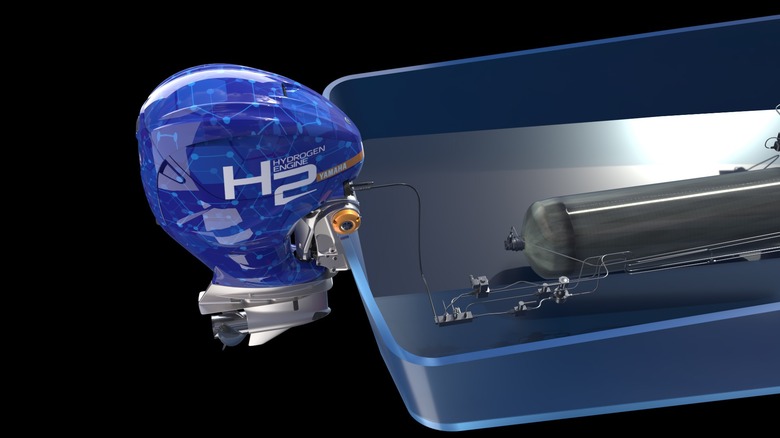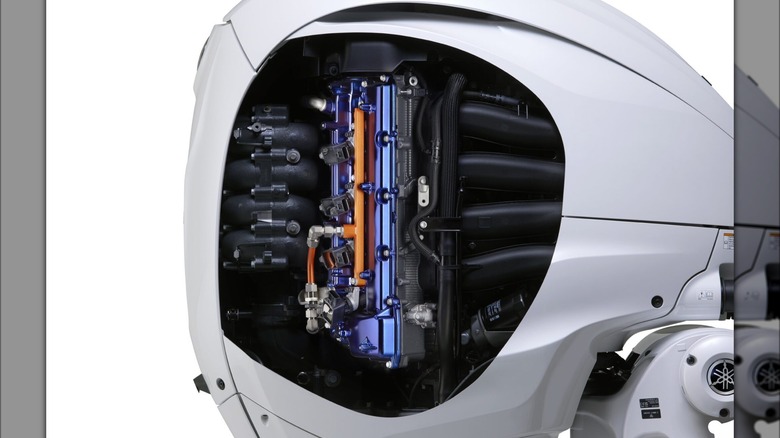Everything We Know About Yamaha's Hydrogen Outboard Engine
Ben Speciale, President of Yamaha's U.S. Marine Business Unit, confirmed Yamaha's commitment to attaining carbon neutrality of its operations by 2035 and its products by 2050. Speciale went on to say, "We believe hydrogen is a viable method of achieving these goals," at the unveiling of the Yamaha Motor Corporation, U.S.A. hydrogen-powered outboard engine in Miami, Florida, on February 14, 2024. With that announcement, Yamaha joins other companies working on hydrogen-powered vehicles.
Yamaha's hydrogen-powered outboard engine, dubbed the H2, is part of a prototype project announced in December of 2023 that includes fuel system engineering by Roush CleanTech, part of the same organization as Roush Racing, and a modified 26-foot boat built by Regulator Marine. Joan Maxwell, President of Regulator Marine, said the project is important for testing hydrogen as an outboard engine fuel source, explaining, "If we don't look for a new source, we won't find a new source."
The H2's hydrogen fuel system requires large hydrogen storage tanks, one of the cons associated with hydrogen-powered vehicles, which the boat's hull must accommodate. Maxwell admits the Hydrogen tanks are larger than she envisioned at first, occupying valuable space in the prototype hull that typically houses fish boxes and marine head facilities.
Roush's Matt Van Benschoten, Vice President of Advance Engineering, said, "Yamaha is trying to determine if hydrogen can successfully be used in this market." In support of the prototype, scheduled to begin testing during the summer of 2024, Roush is providing the design and integration of the hydrogen fuel system, as well as safety analysis.
Yamaha's H2 outboard engine
Yamaha's H2 hydrogen-powered outboard engine uses hydrogen instead of gasoline in its combustion chambers. While this technology is a departure from the systems found in hydrogen fuel-cell vehicles (HFCV) driving the streets of California, it's more like the internal combustion engine we're accustomed to rather than battery electric vehicle (BEV) power.
The H2 hydrogen outboard is a derivative of Yamaha's XTO Offshore outboard engines. The XTO Offshore outboard's 5.6-liter V8 gasoline-engine produces up to 450 horsepower, making it one of the most powerful Yamaha boat motors ever made. Hydrogen's low volumetric energy density means the H2 will produce slightly less horsepower than the XTO Offshore using the same 5.6-liter displacement.
Examples from Cummins, a reputable diesel engine innovator, demonstrate the loss of power by comparing horsepower ratings of two 6.7-liter internal combustion engines, one gasoline powered and the other using hydrogen. The gasoline-powered Cummins 6.7-liter is rated at up to 325 horsepower compared to the hydrogen version with its 290-horsepower rating.
If the 10-percent power loss of the Cummins example is seen in the H2 outboard, it could still produce in excess of 400 horsepower. That output would put it in the ranks as one of the most powerful outboard boat engines available and with zero carbon emissions.

